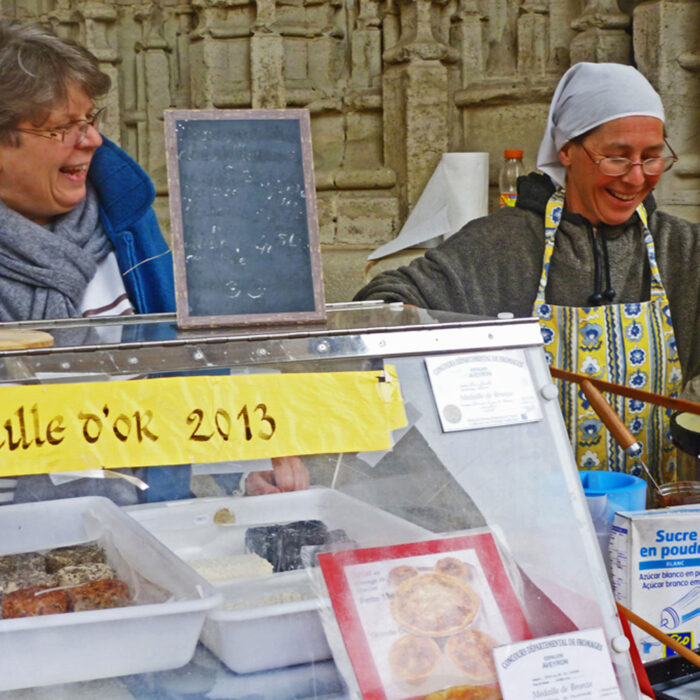You have no items in your cart. Want to get some nice things?
Go shopping
A mother and her four-year-old son are found dead in their Tachikawa apartment, reportedly of a sudden heart attack, her mentally disabled son, unable to care for himself, died of starvation. Their bodies remain undiscovered for several weeks.
First light this winter morning reveals the ghostly face of Fuji, pale, impassive. Then the dawn: nothing more than a thin blush above the Tama Hills that deepens into rich coral, making the bland plaster of the school nearby momentarily resemble the gorgeous pink walls of a Spanish estate. Later, the light intensifies, spilling over the surrounding houses and empty lots, imparting to the most common objects a borrowed radiance. The violets and geraniums on the balcony quiver at the prospect of another day of this delicious light.
While the morning is still young, I get on my bicycle and ride up the river for twenty kilometers, the hills on the horizon slowly lifting their humps as I approach, like cattle rising from their knees at feeding time. Flashes of scaly light from the river blind me momentarily as I cycle along; it’s a happy, wincing pain. Now and then a startled duck rises from the riverbank, or the quavering screech of a black kite gliding in arcs above my head fools me into thinking I have discovered something approaching solitude.
I rest near Tachikawa, unable to ride past without pausing, recalling that a boy and his mother died in an apartment somewhere near the river. I imagine the boy watching his mother totter, not understanding, yet sensing that her struggle to stay erect was unusual. She had felt this malaise worsening for a long time, but now it forced her to her knees. “Not like this!” she panted, the pain bearing down on her. She turned her face away so as not to show the boy her agony, and at that moment death struck her suddenly between the shoulder blades. She collapsed face-down on the floor.
Her boy had been sitting on the sofa watching her. He had always been content there, absorbed with the television and the simple toys that kept his attention for hours. A coloring book full of his vibrant scrawls lay open beside him. From this vantage point it was easy for him to look up now and then to see the comforting sight of his mother busy in the kitchen, or passing from one room to another as she cleaned. It was this constant activity that had lent equanimity to his silent life. He had never seen her asleep. She was always up and about before he opened his eyes in the morning; and at night, as he was falling asleep, he would see her familiar shadow flitting down the hallway.
Incomprehension had seized him as he watched her fall to the floor. He could not understand why she had not turned her head to look at him. Even her sternest and most disapproving looks had always been tinged with pity; whenever she scolded him, she finished by running her hand over his fine black hair with a look that showed love and sad resignation. But now she lay sprawled on the floor, her face turned away from him.
Silence crept into the room. It sat next to his mother’s body, staring hungrily at him. He expected his mother to jump up and rush to protect him, but still she refused to move. Calling out to her or wailing brought no change in her condition. This was betrayal, he felt. Anger welled up inside him. He threw a cushion at her. It struck her head and rolled to one side, coming to rest on her extended arm. She didn’t brush it away, so he threw another and, more enraged, some of his toys. Each time he threw something the terrible reality that he could not get her attention registered in his childish consciousness. Soon the effort tired him, and he started crying softly, filling the apartment with his own unfamiliar voice.
It had been after lunch when his mother died. Evening came on, and with it darkness, new terrors. Hunger clawed at his stomach. It was a new, cruel sensation. At first he repeated over and over again the single word that had always produced his lunch or dinner: “Gohan!” But the familiar smells, the melody of his mother busy in the kitchen preparing his meal were gone. The regularity of his meals had never been broken; his mother had always called him when they were ready; now there was only that incorrigible silence, sitting glaring at him.
The light of the kitchen had been on that day; it cast a luminous stream, familiar yet ominous, on the boy and his mother. Its lazy gleam at night had been soothing at one time; that same light now produced frightful shadows that terrorized the boy. He covered his head with the blanket that was on the sofa, and in that state, whimpering, exhausted from fear and unsatisfied hunger, fell asleep. The next day brought no change, only hunger was now combined with thirst. He remembered the refrigerator, and the good things his mother always took from it. Crawling to it took considerable effort, but once in front of the door he didn’t have the strength to open it. The shelves, the counter, the tap all seemed to recede from the tips of his fingers, tormenting him. He sat down on the floor and cried, but this only made him weaker and constricted his already-parched throat. So he made his faltering way back to the sofa.
Hunger and thirst, now two days strong, quickly weakened him. He could only lie on the sofa and stare at the form of his mother. It had altered already, the body beginning to swell. The stench in the room oppressed him. It was an unfamiliar odour that even his weak intelligence grasped was not part of those he had become used to: the fragrance of shampoo when his mother washed his hair, the starchy aroma of boiled rice before dinner, the comforting smell of clean sheets. Those same sheets reminded him of his futon. Too weak to walk, the boy crawled slowly, unsteadily to the haven of his own room. It was at the end of the hallway, and there the stench was weaker. He stretched out on his futon and slept for hours. He never left it again, the hunger now so advanced that it made him listless. He survived another day. His last hours resembled a dream, whose only concrete image was of the mother who had failed him.
The boy starved to death in December, when the light is of an uncommon beauty and gentleness in Japan. It glances off the shimmering surface of the river grown placid after having spent itself during the typhoons of autumn, its roiled current subdued to that of a common stream. Anglers wade into the middle of it to practice fly fishing. On the banks, gnats dance above the last of the wild grasses whose silver heads nod sagely in the breeze.
For two weeks I had tried to resolve this contradiction: that at a time when my happiness was at its fullest, when I had raced contentedly along the river in the December sunshine, this starving, listless boy breathed his last, alone, the same sunshine filling the room he was in with a light that illuminated his vulnerability, his suffering, his death.
Unable to find release from the image of that boy, unable to exonerate myself for the happiness I felt while he starved to death, I had turned to the medical encyclopedias for descriptions of starvation, feebly trying to convince myself that the inanition brought on by his condition had probably lessened his suffering. Dissatisfied, hoping to make sense of the horror I felt, I had opened some books of philosophy and read there dispassionate treatises on the impermanence of all things. I returned the books to their places on the shelf. Near despair, I happened to open Saint-Exupéry’s Flight to Arras, and there read:
Why should the peace of summer be seen as a contradiction of death, or the gentleness of nature as an irony?
And what science and philosophy could not offer, the artist did. They will say that his mother suffered cardiac arrest brought on by exhaustion and a heart condition; that we are all subject to death; that after all life must go on. But from the artist I get courage born of awareness that reinforces the will to live in the face of senseless death, a courage that helps me to get on my bicycle again and continue up the path of silver that is the river.
The egrets leave their hiding places, like shy friends come to greet me. The silver-grass whispers a secret I feel I already know. I carry that secret with me as I cycle toward the Tama Hills.

About Terry Wood
A long-term resident of Japan, T. Wood holds a Master of Arts degree in Advanced Japanese Studies from the University of Sheffield. His writing has appeared in the Green Hills Literary Lantern, and he is currently working on a novel set in the Taisho period.




